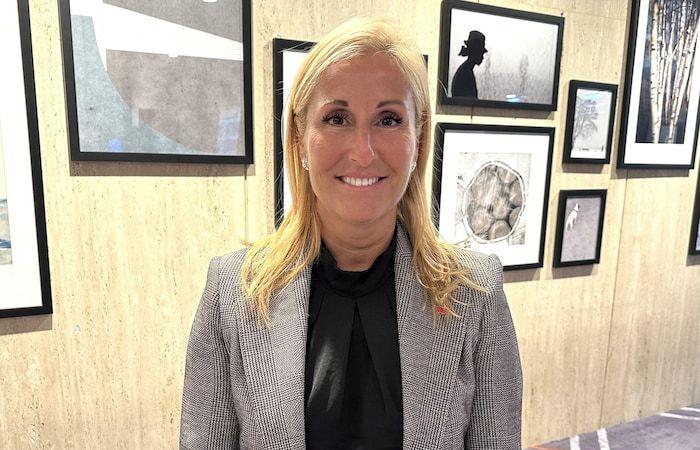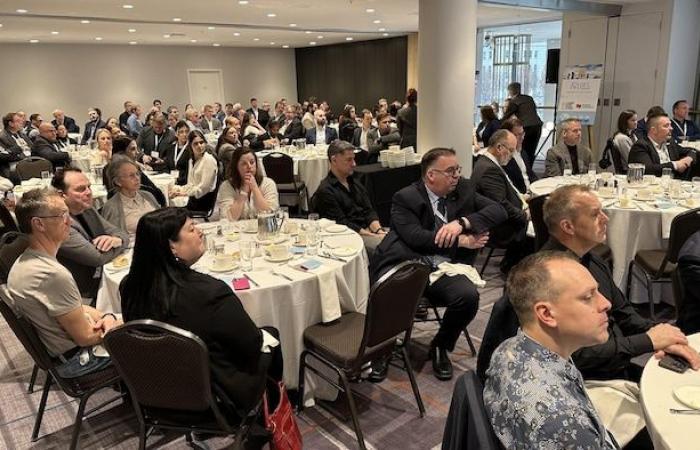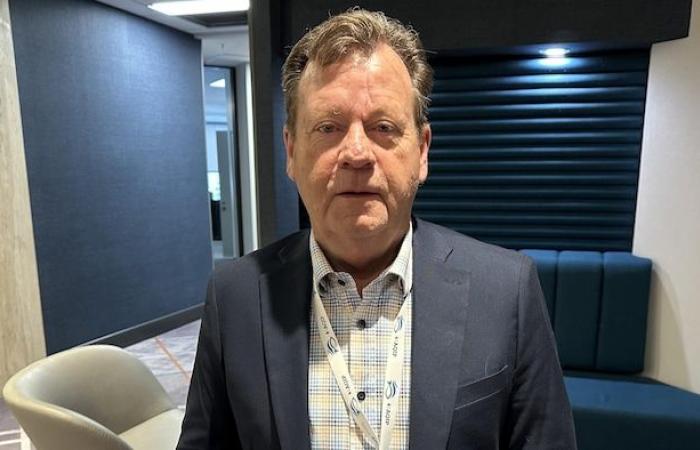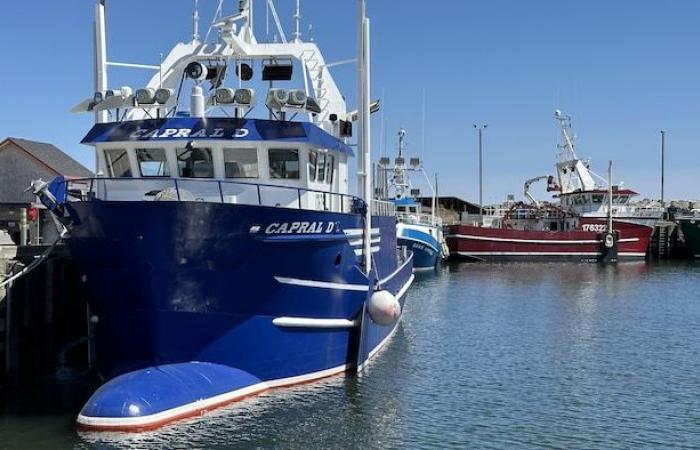It would be unlikely that the new Trump administration would impose tariffs on Canadian marine products. At least this is the analysis made by the first vice-president of business and private management of the National Bank, Geneviève Turbide-Potvin.
The specialist came to present the economic prospects of Canada and the United States at the 46th Congress of theAQIP Thursday in Quebec.
Geneviève Turbide-Potvin believes that fisheries and agriculture will not be in the crosshairs of President-elect Donald Trump, if he moves forward with the imposition of customs tariffs. She recalls that agricultural products and marine products represent just over 5% of imports from Canada.
My intuition tells me that it would go more towards products that are important for the United States, like wood or oil for example.
Open in full screen mode
The 1st vice-president of business and private banking at the National Bank, Geneviève Turbide-Potvin, adds that inflation and GDP which would be at their maximum in the United States, contrary to his first mandate, could dissuade Donald Trump from backing down with these customs tariffs.
Photo : - / Martin Toulgoat
Even if the president-elect remains unpredictable, she adds that all current economic indicators risk pushing him back. Customs tariffs would increase inflation in the United States, particularly in the states which share the border with Canada and which depend on its products.
They still have significant difficulties currently in containing inflation, so imposing tariffs like that would accentuate the inflationary problems in their country.
adds the specialist.
An analysis that reassures the industry
This contextualization came to reassure the fishing industry who depend enormously on the American market, including snow crab which is mainly sold south of the border.
This gives us confidence for the future, even if we cannot see into the future, but we have confidence that we will go under the radar and that we will escape taxation.
Open in full screen mode
Customs tariffs or not, the first vice-president of business and private management of the National Bank advises industries such as fishing to depend less on the United States by diversifying their export markets as much as possible.
Photo : - / Martin Toulgoat
-Not the first crisis
Fisheries sector analyst and editor-in-chief of the newspaper Impact FishingRobert Nicolas, adds that several industrialists are not at their first crisis. According to him, we must put the American threat into perspective, while being aware that such economic measures would deal a hard blow to the industry.
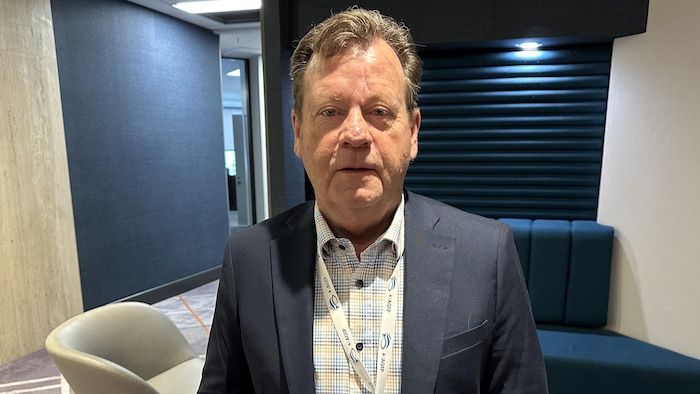
Open in full screen mode
The editor-in-chief of Pêche Impact, Robert Nicolas, underlines the resilience of the fishing industry which has gone through several crises over the last 40 years.
Photo : - / Martin Toulgoat
I spoke to people this week who have been in the industry for over 40 years, who have seen others, and who remain relatively optimistic. They are capable of adapting and we must not forget that when it comes to feeding people, it will perhaps benefit the sector
believes Robert Nicolas.
The outgoing general director of theAQIPJean-Paul Gagné, remains optimistic. He also believes that Donald Trump will reverse course.
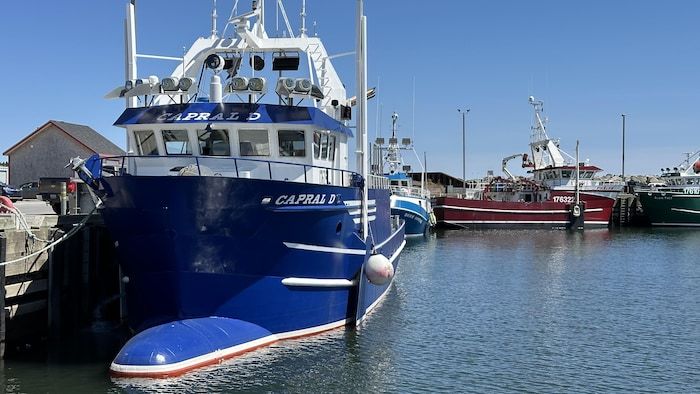
Open in full screen mode
Fisheries are an important part of the economy of the Magdalen Islands and certain communities in Gaspésie such as Sainte-Thérèse-de-Gaspé. (Archive photo)
Photo : - / Martin Toulgoat
Mr. Gagné nevertheless hopes that the Minister of Fisheries and Oceans Canada, Diane Lebouthillier, will highlight the economic importance of fisheries for coastal communities to her fellow ministers who will negotiate with the new American administration.
It is very important that Ms. Lebouthillier asserts herself in this because it is not just our maritime regions of Quebec, but there are all the maritime provinces, particularly in snow crab, which will be affected.
adds Jean-Paul Gagné.
The Minister of Fisheries and Oceans Canada, Diane Lebouthillier, was also invited to a speech at the closing banquet of the congress of theAQIP which closed the Association’s congress on Thursday evening in Quebec. The Minister of Agriculture, Fisheries and Food, André Lamontagne, was also due to speak.

